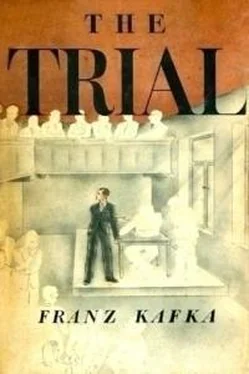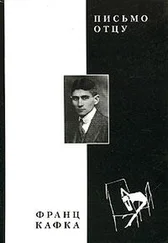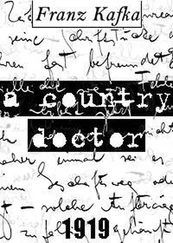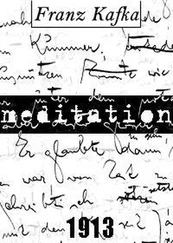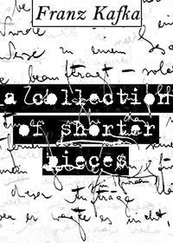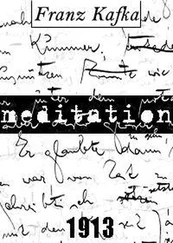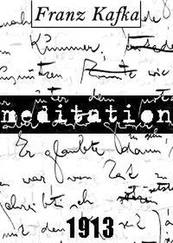Франц Кафка - The Trial
Здесь есть возможность читать онлайн «Франц Кафка - The Trial» — ознакомительный отрывок электронной книги совершенно бесплатно, а после прочтения отрывка купить полную версию. В некоторых случаях можно слушать аудио, скачать через торрент в формате fb2 и присутствует краткое содержание. Год выпуска: 2014, Издательство: epubBooks Classics, Жанр: Классическая проза, на английском языке. Описание произведения, (предисловие) а так же отзывы посетителей доступны на портале библиотеки ЛибКат.
- Название:The Trial
- Автор:
- Издательство:epubBooks Classics
- Жанр:
- Год:2014
- ISBN:нет данных
- Рейтинг книги:3 / 5. Голосов: 1
-
Избранное:Добавить в избранное
- Отзывы:
-
Ваша оценка:
- 60
- 1
- 2
- 3
- 4
- 5
The Trial: краткое содержание, описание и аннотация
Предлагаем к чтению аннотацию, описание, краткое содержание или предисловие (зависит от того, что написал сам автор книги «The Trial»). Если вы не нашли необходимую информацию о книге — напишите в комментариях, мы постараемся отыскать её.
The Trial — читать онлайн ознакомительный отрывок
Ниже представлен текст книги, разбитый по страницам. Система сохранения места последней прочитанной страницы, позволяет с удобством читать онлайн бесплатно книгу «The Trial», без необходимости каждый раз заново искать на чём Вы остановились. Поставьте закладку, и сможете в любой момент перейти на страницу, на которой закончили чтение.
Интервал:
Закладка:
There was then a noise that everyone heard from the hallway as if something of porcelain were being broken. "I'll go and see what's happened," said K., who slowly left the room as if giving the others the chance to stop him. He had hardly stepped into the hallway, finding his bearings in the darkness with his hand still firmly holding the door, when another small hand, much smaller than K.'s own, placed itself on his and gently shut the door. It was the carer who had been waiting there. "Nothing has happened," she whispered to him, "I just threw a plate against the wall to get you out of there." "I was thinking about you, as well," replied K. uneasily. "So much the better," said the carer. "Come with me". A few steps along, they came to a frosted glass door which the carer opened for him. "Come in here," she said. It was clearly the lawyer's office, fitted out with old, heavy furniture, as far as could be seen in the moonlight which now illuminated just a small, rectangular section of the floor by each of the three big windows. "This way," said the carer, pointing to a dark trunk with a carved, wooden backrest. When he had sat down, K. continued to look round the room, it was a large room with a high ceiling, the clients of this lawyer for the poor must have felt quite lost in it. K. thought he could see the little steps with which visitors would approach the massive desk. But then he forgot about all of this and had eyes only for the carer who sat very close beside him, almost pressing him against the armrest. "I did think," she said "you would come out here to me by yourself without me having to call you first. It was odd. First you stare at me as soon as you come in, and then you keep me waiting. And you ought to call me Leni, too," she added quickly and suddenly, as if no moment of this conversation should be lost. "Gladly," said K. "But as for its being odd, Leni, that's easy to explain. Firstly, I had to listen to what the old men were saying and couldn't leave without a good reason, but secondly I'm not a bold person, if anything I'm quite shy, and you, Leni, you didn't really look like you could be won over in one stroke, either." "That's not it," said Leni, laying one arm on the armrest and looking at K., "you didn't like me, and I don't suppose you like me now, either." "Liking wouldn't be very much," said K., evasively. "Oh!" she exclaimed with a smile, thus making use of K.'s comment to gain an advantage over him. So K. remained silent for a while. By now, he had become used to the darkness in the room and was able to make out various fixtures and fittings. He was especially impressed by a large picture hanging to the right of the door, he leant forward in order to see it better. It depicted a man wearing a judge's robes; he was sitting on a lofty throne gilded in a way that shone forth from the picture. The odd thing about the picture was that this judge was not sitting there in dignified calm but had his left arm pressed against the back and armrest, his right arm, however, was completely free and only grasped the armrest with his hand, as if about to jump up any moment in vigorous outrage and make some decisive comment or even to pass sentence. The accused was probably meant to be imagined at the foot of the steps, the top one of which could be seen in the picture, covered with a yellow carpet. "That might be my judge," said K., pointing to the picture with one finger. "I know him," said Leni looking up at the picture, "he comes here quite often. That picture is from when he was young, but he can never have looked anything like it, as he's tiny, minute almost. But despite that, he had himself made to look bigger in the picture as he's madly vain, just like everyone round here. But even I'm vain and that makes me very unhappy that you don't like me." K. replied to that last comment merely by embracing Leni and drawing her towards him, she lay her head quietly on his shoulder. To the rest of it, though, he said, "What rank is he?" "He's an examining judge," she said, taking hold of the hand with which K. held her and playing with his fingers. "Just an examining judge once again," said K. in disappointment, "the senior officials keep themselves hidden. But here he is sitting on a throne." "That's all just made up," said Leni with her face bent over K.'s hand, "really he's sitting on a kitchen chair with an old horse blanket folded over it. But do you have to be always thinking about your trial?" she added slowly. "No, not at all," said K., "I probably even think too little about it." "That's not the mistake you're making," said Leni, "you're too unyielding, that's what I've heard." "Who said that?" asked K., he felt her body against his chest and looked down on her rich, dark, tightly–bound hair. "I'd be saying too much if I told you that," answered Leni. "Please don't ask for names, but do stop making these mistakes of yours, stop being so unyielding, there's nothing you can do to defend yourself from this court, you have to confess. So confess to them as soon as you get the chance. It's only then that they give you the chance to get away, not till then. Only, without help from outside even that's impossible, but you needn't worry about getting this help as I want to help you myself." "You understand a lot about this court and what sort of tricks are needed," said K. as he lifted her, since she was pressing in much too close to him, onto his lap. "That's alright, then," she said, and made herself comfortable on his lap by smoothing out her skirt and adjusting her blouse. Then she hung both her arms around his neck, leant back and took a long look at him. "And what if I don't confess, could you not help me then?" asked K. to test her out. I'm accumulating women to help me, he thought to himself almost in amazement, first Miss Bürstner, then the court usher's wife, and now this little care assistant who seems to have some incomprehensible need for me. The way she sits on my lap as if it were her proper place! "No," answered Leni, slowly shaking her head, "I couldn't help you then. But you don't want my help anyway, it means nothing to you, you're too stubborn and won't be persuaded." Then, after a while she asked, "Do you have a lover?" "No," said K. "Oh, you must have," she said. "Well, I have really," said K. "Just think, I've even betrayed her while I'm carrying her photograph with me." Leni insisted he show her a photograph of Elsa, and then, hunched on his lap, studied the picture closely. The photograph was not one that had been taken while Elsa was posing for it, it showed her just after she had been in a wild dance such as she liked to do in wine bars, her skirt was still flung out as she span round, she had placed her hands on her firm hips and, with her neck held taut, looked to one side with a laugh; you could not see from the picture whom her laugh was intended for. "She's very tightly laced," said Leni, pointing to the place where she thought this could be seen. "I don't like her, she's clumsy and crude. But maybe she's gentle and friendly towards you, that's the impression you get from the picture. Big, strong girls like that often don't know how to be anything but gentle and friendly. Would she be capable of sacrificing herself for you, though?" "No," said K., "she isn't gentle or friendly, and nor would she be capable of sacrificing herself for me. But I've never yet asked any of those things of her. I've never looked at this picture as closely as you." "You can't think much of her, then," said Leni. "She can't be your lover after all." "Yes she is," said K., "I'm not going to take my word back on that." "Well she might be your lover now, then," said Leni, "but you wouldn't miss her much if you lost her or if you exchanged her for somebody else, me for instance." "That is certainly conceivable," said K. with a smile, "but she does have one major advantage over you, she knows nothing about my trial, and even if she did she wouldn't think about it. She wouldn't try to persuade me to be less unyielding." "Well that's no advantage," said Leni. "If she's got no advantage other than that, I can keep on hoping. Has she got any bodily defects?" "'Bodily defects'?" asked K. "Yeah," said Leni, "as I do have a bodily defect, just a little one. Look." She spread the middle and ring fingers of her right hand apart from each other. Between those fingers the flap of skin connecting them reached up almost as far as the top joint of the little finger. In the darkness, K. did not see at first what it was she wanted to show him, so she led his hand to it so that he could feel. "What a freak of nature," said K., and when he had taken a look at the whole hand he added, "What a pretty claw!" Leni looked on with a kind of pride as K. repeatedly opened and closed her two fingers in amazement, until, finally, he briefly kissed them and let go. "Oh!" she immediately exclaimed, "you kissed me!" Hurriedly, and with her mouth open, she clambered up K.'s lap with her knees. He was almost aghast as he looked up at her, now that she was so close to him there was a bitter, irritating smell from her, like pepper, she grasped his head, leant out over him, and bit and kissed his neck, even biting into his hair. "I've taken her place!" she exclaimed from time to time. "Just look, now you've taken me instead of her!" Just then, her knee slipped out and, with a little cry, she nearly fell down onto the carpet, K. tried to hold her by putting his arms around her and was pulled down with her. "Now you're mine," she said. Her last words to him as he left were, "Here's the key to the door, come whenever you want", and she planted an undirected kiss on his back. When he stepped out the front door there was a light rain falling, he was about to go to the middle of the street to see if he could still glimpse Leni at the window when K.'s uncle leapt out of a car that K., thinking of other things, had not seen waiting outside the building. He took hold of K. by both arms and shoved him against the door as if he wanted to nail him to it. "Young man," he shouted, "how could you do a thing like that?! Things were going well with this business of yours, now you've caused it terrible damage. You slip off with some dirty, little thing who, moreover, is obviously the lawyer's beloved, and stay away for hours. You don't even try to find an excuse, don't try to hide anything, no, you're quite open about it, you run off with her and stay there. And meanwhile we're sitting there, your uncle who's going to such effort for you, the lawyer who needs to be won over to your side, and above all the office director, a very important gentleman who is in direct command of your affair in its present stage. We wanted to discuss how best to help you, I had to handle the lawyer very carefully, he had to handle the office director carefully, and you had most reason of all to at least give me some support. Instead of which you stay away. Eventually we couldn't keep up the pretence any longer, but these are polite and highly capable men, they didn't say anything about it so as to spare my feelings but in the end not even they could continue to force themselves and, as they couldn't speak about the matter in hand, they became silent. We sat there for several minutes, listening to see whether you wouldn't finally come back. All in vain. In the end the office director stood up, as he had stayed far longer than he had originally intended, made his farewell, looked at me in sympathy without being able to help, he waited at the door for a long time although it's more than I can understand why he was being so good, and then he went. I, of course, was glad he'd gone, I'd been holding my breath all this time. All this had even more affect on the lawyer lying there ill, when I took my leave of him, the good man, he was quite unable to speak. You have probably contributed to his total collapse and so brought the very man who you are dependent on closer to his death. And me, your own uncle, you leave me here in the rain – just feel this, I'm wet right through – waiting here for hours, sick with worry."
Читать дальшеИнтервал:
Закладка:
Похожие книги на «The Trial»
Представляем Вашему вниманию похожие книги на «The Trial» списком для выбора. Мы отобрали схожую по названию и смыслу литературу в надежде предоставить читателям больше вариантов отыскать новые, интересные, ещё непрочитанные произведения.
Обсуждение, отзывы о книге «The Trial» и просто собственные мнения читателей. Оставьте ваши комментарии, напишите, что Вы думаете о произведении, его смысле или главных героях. Укажите что конкретно понравилось, а что нет, и почему Вы так считаете.
